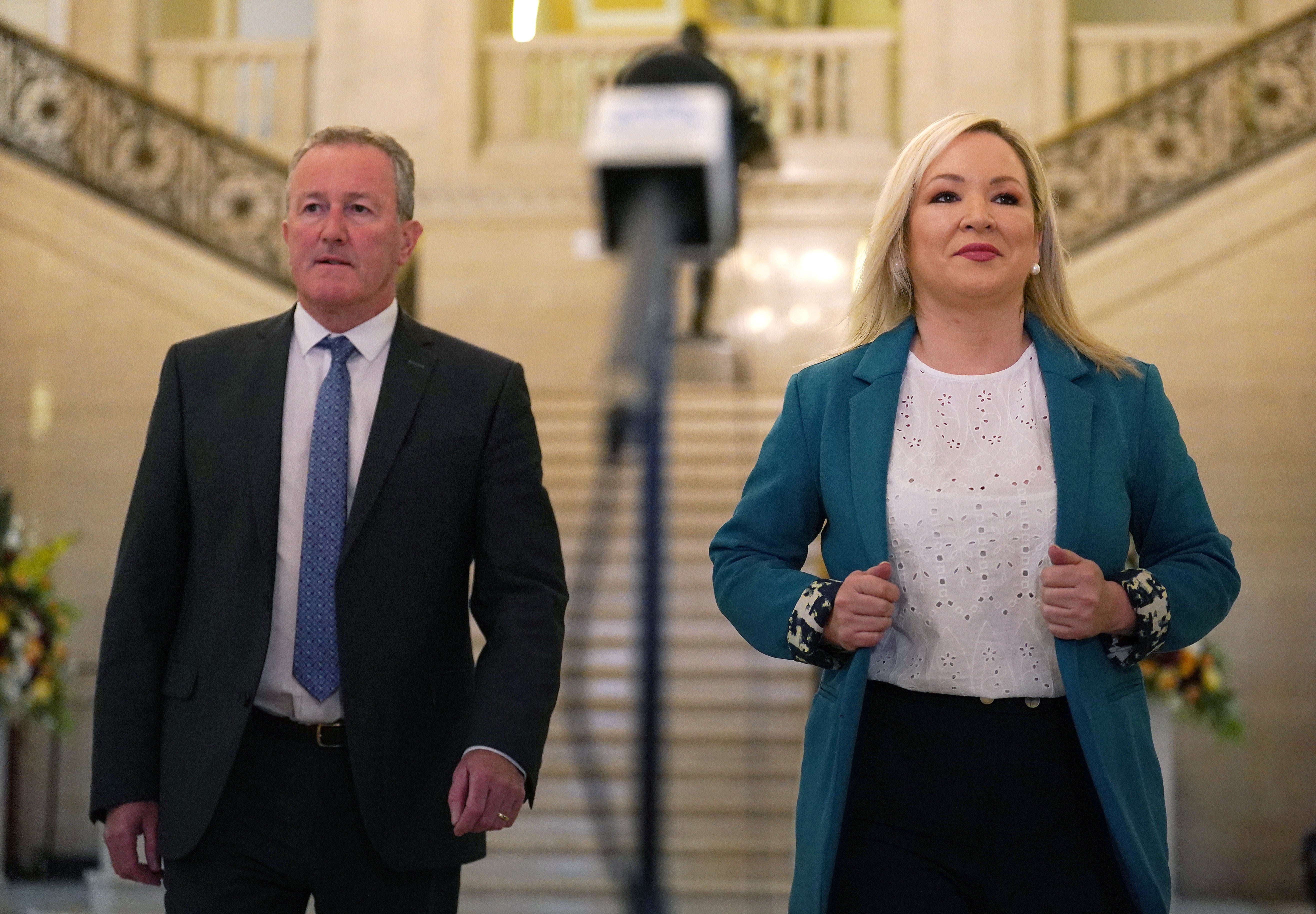Lack of clarity over £400 energy discount without Stormont Executive – Murphy
The Stormont Finance Minister said that the lack of an Executive in Northern Ireland will pose challenges for introducing the discount.

Your support helps us to tell the story
From reproductive rights to climate change to Big Tech, The Independent is on the ground when the story is developing. Whether it's investigating the financials of Elon Musk's pro-Trump PAC or producing our latest documentary, 'The A Word', which shines a light on the American women fighting for reproductive rights, we know how important it is to parse out the facts from the messaging.
At such a critical moment in US history, we need reporters on the ground. Your donation allows us to keep sending journalists to speak to both sides of the story.
The Independent is trusted by Americans across the entire political spectrum. And unlike many other quality news outlets, we choose not to lock Americans out of our reporting and analysis with paywalls. We believe quality journalism should be available to everyone, paid for by those who can afford it.
Your support makes all the difference.Concerns have been raised about what the lack of a power-sharing Executive in Northern Ireland means for the £400 discount on energy bills announced by the Treasury.
The discount, announced by Chancellor Rishi Sunak as part of a range of measures to tackle the spiralling cost of living, is intended to be UK-wide.
But the Sinn Fein Stormont Finance Minister on Thursday said that the lack of an Executive in Northern Ireland will pose challenges for introducing the discount for households in the region.
Conor Murphy said the Treasury is exploring how equivalent support can be provided to people in Northern Ireland despite the lack of a devolved administration.
In a statement, he said he had spoken to the Chief Secretary to the Treasury Simon Clarke on Thursday.
“I have committed to working with him to ensure the Energy Bills Support Scheme will deliver equivalent support to people here given the absence of an Executive.
“Our citizens need support now.”
Sinn Fein, backed by other parties in Northern Ireland, has urged the DUP to end its refusal to return to powersharing until issues with the Northern Ireland Protocol are resolved.
Mr Murphy welcomed the cost-of-living package announced by the Chancellor.
However, he also said that it does not go far enough to meet the needs of struggling households.
“I am glad the British Government has at long last intervened to provide support to citizens.
“For some time I have been calling on the Chancellor to impose a windfall tax to ensure that the most vulnerable in society are supported through this cost-of-living crisis.
“It is welcome news that support will be directly provided to many low-income households on benefits, pensioners and individuals receiving disability benefits.
“However, it is disappointing that the Chancellor has offered no assistance for businesses which are also facing increased costs including extra fuel and energy costs coupled with additional National Insurance contributions.
“At a time when households and businesses are facing spiralling fuel and energy costs, today’s statement fails to reduce VAT on energy bills – this would have helped many others in society.”
Mr Murphy said that politicians in Northern Ireland are now unable to spend over £430 million due to the absence of powersharing.
“The additional £14 million funding we will receive from the Household Support Fund cannot be allocated in the absence of an Executive.
“This now means there is a total of £435 million which cannot be allocated to help families, workers and businesses with the cost of living and to support public services, particularly our health service.”
DUP MLA Jonathan Buckley acknowledged to BBC Radio Ulster that there was no indication yet of how the £400 discount on energy bills will be spent in Northern Ireland.
But he also defended his party’s position: “Equally, the Treasury is not sure how it can work in relation to the ties with the protocol.
“These issues have to be addressed. There is no reason why it cannot be addressed if there is collective will. The Government understands our concerns in relation to the protocol, as do our voters.
“We want to get down to business, we want to see devolved government operational but it must be on a sustainable, long-term footing.
“A sticking plaster will not suffice in relation to this issue.”